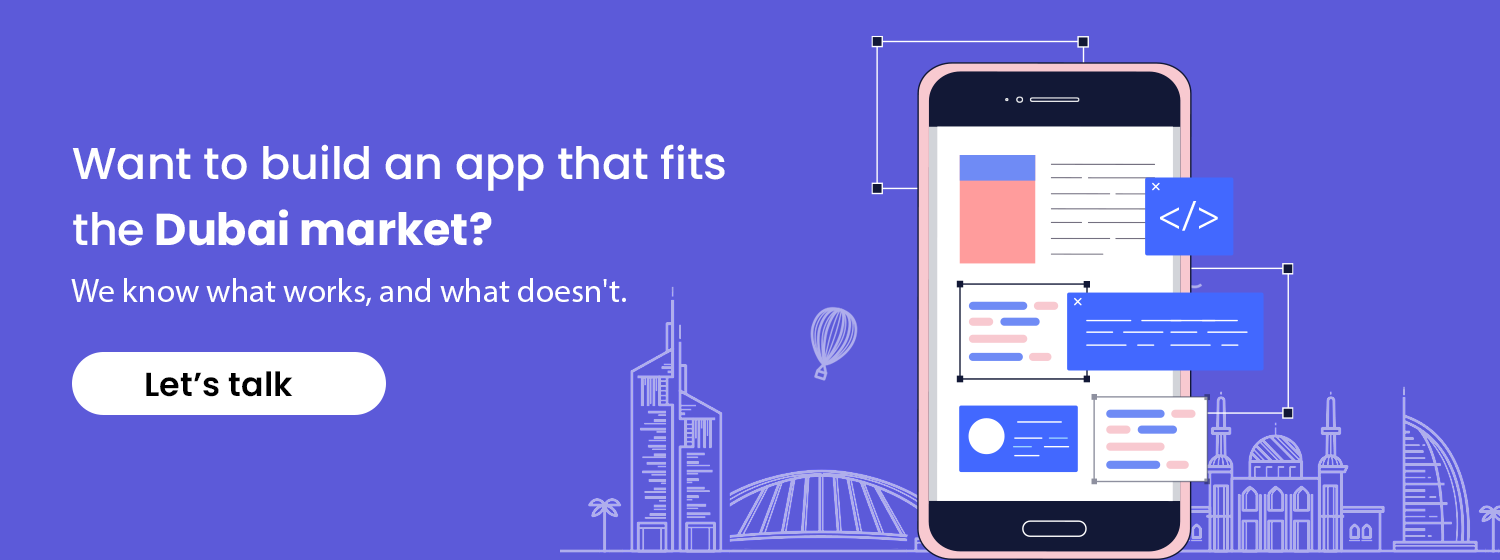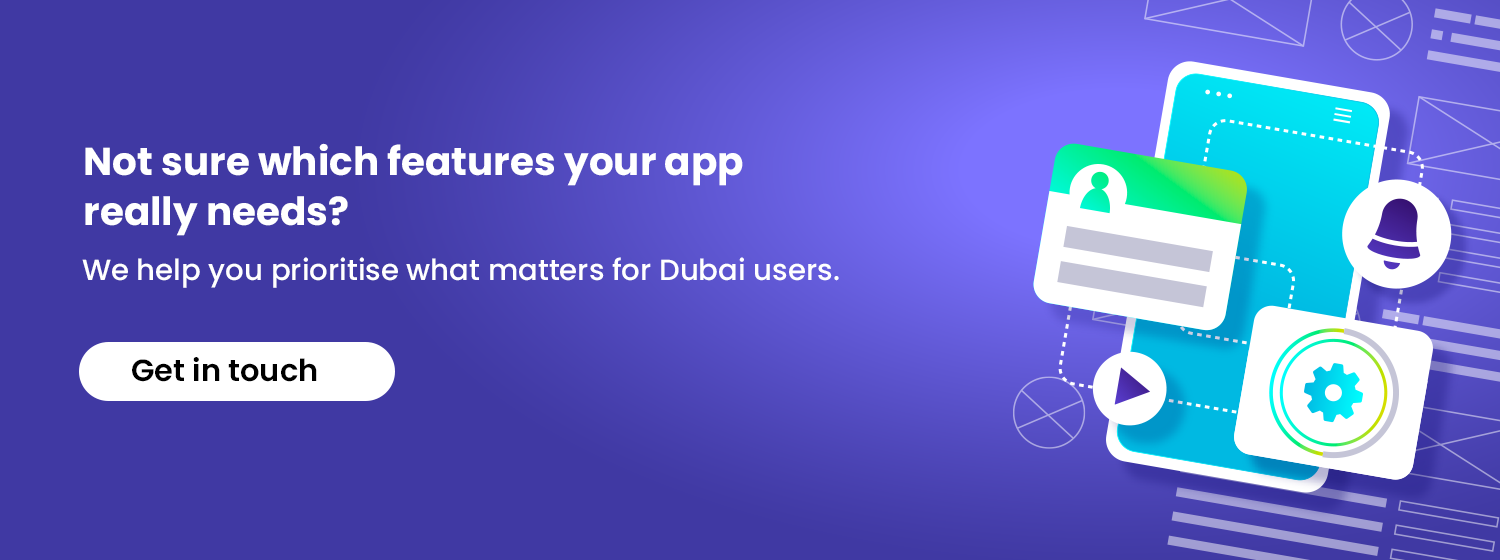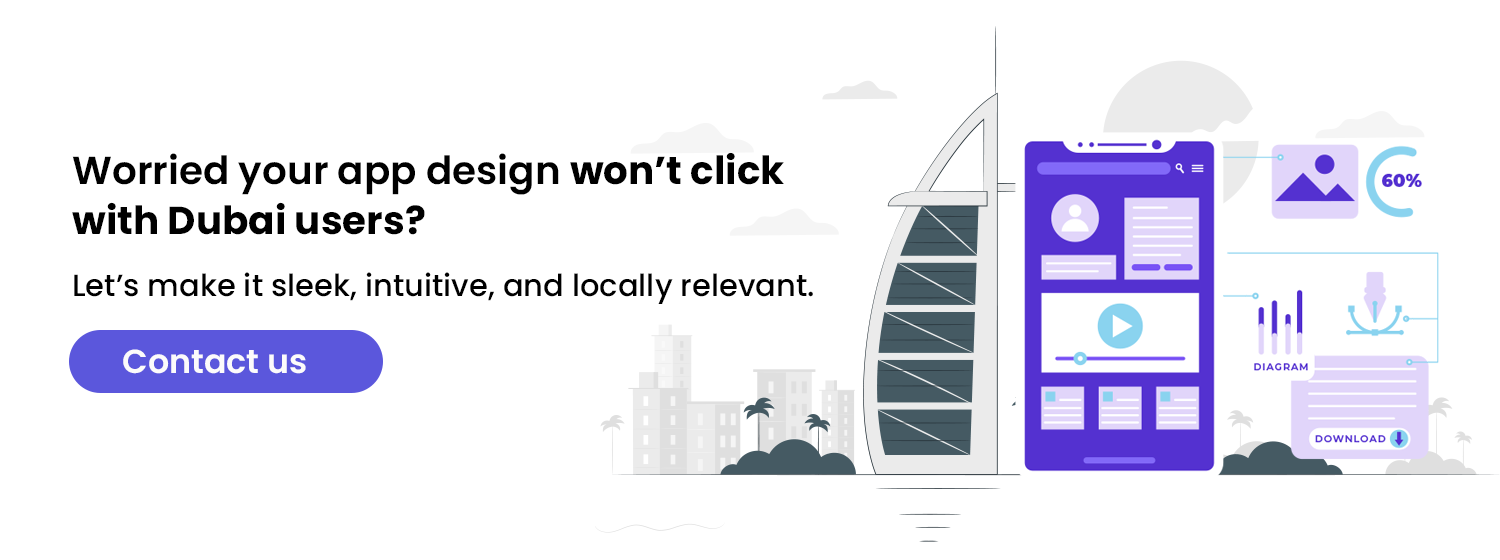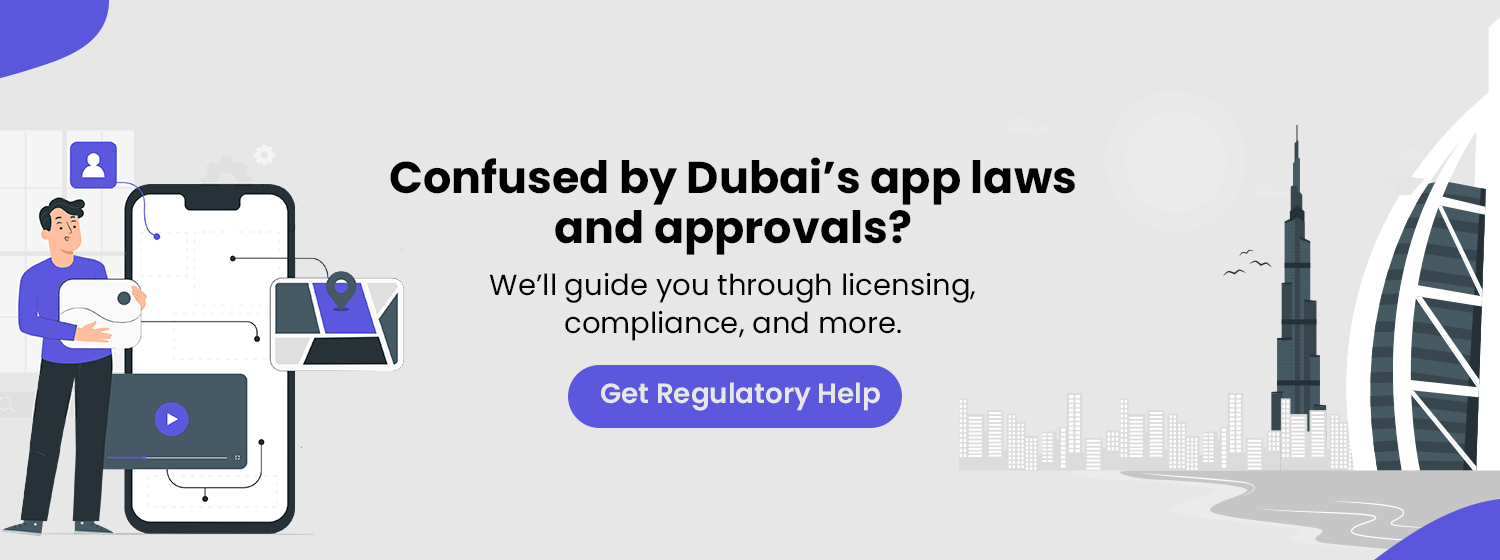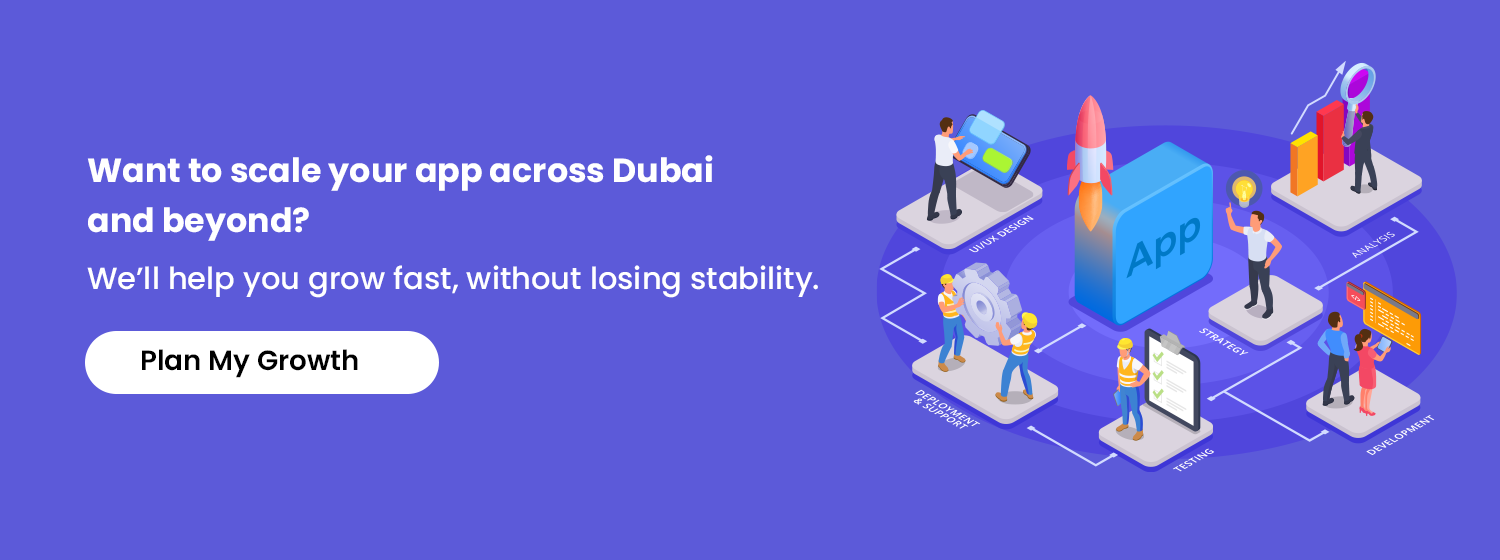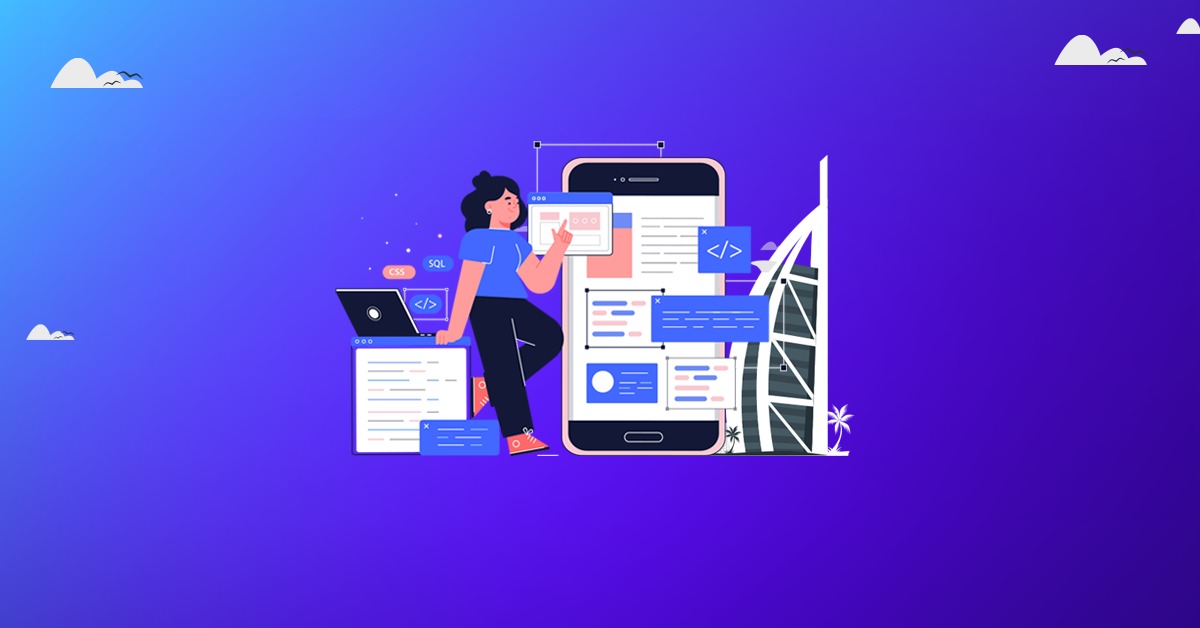
The Dubai market isn’t just booming – it’s transforming. From hyper-connected consumers to government-led digitalization drives, the city is fast becoming a testbed for tech innovation. But here’s the thing: building an app for Dubai isn’t just about coding. It’s about decoding culture, understanding regulations, and designing with purpose in a market that’s as demanding as it is rewarding.
Whether you’re eyeing the next big fintech app, a luxury lifestyle platform, or a B2B tool that helps companies scale faster, one thing’s clear: the process to build mobile app for Dubai market is very different from building one for any other region.
Understanding the Dubai App Market
Dubai isn’t just another city – it’s a global business hub with a unique mix of cultures, high digital adoption, and a government that actively invests in smart services. To succeed here, your app needs to reflect how the city works, shops, and connects.
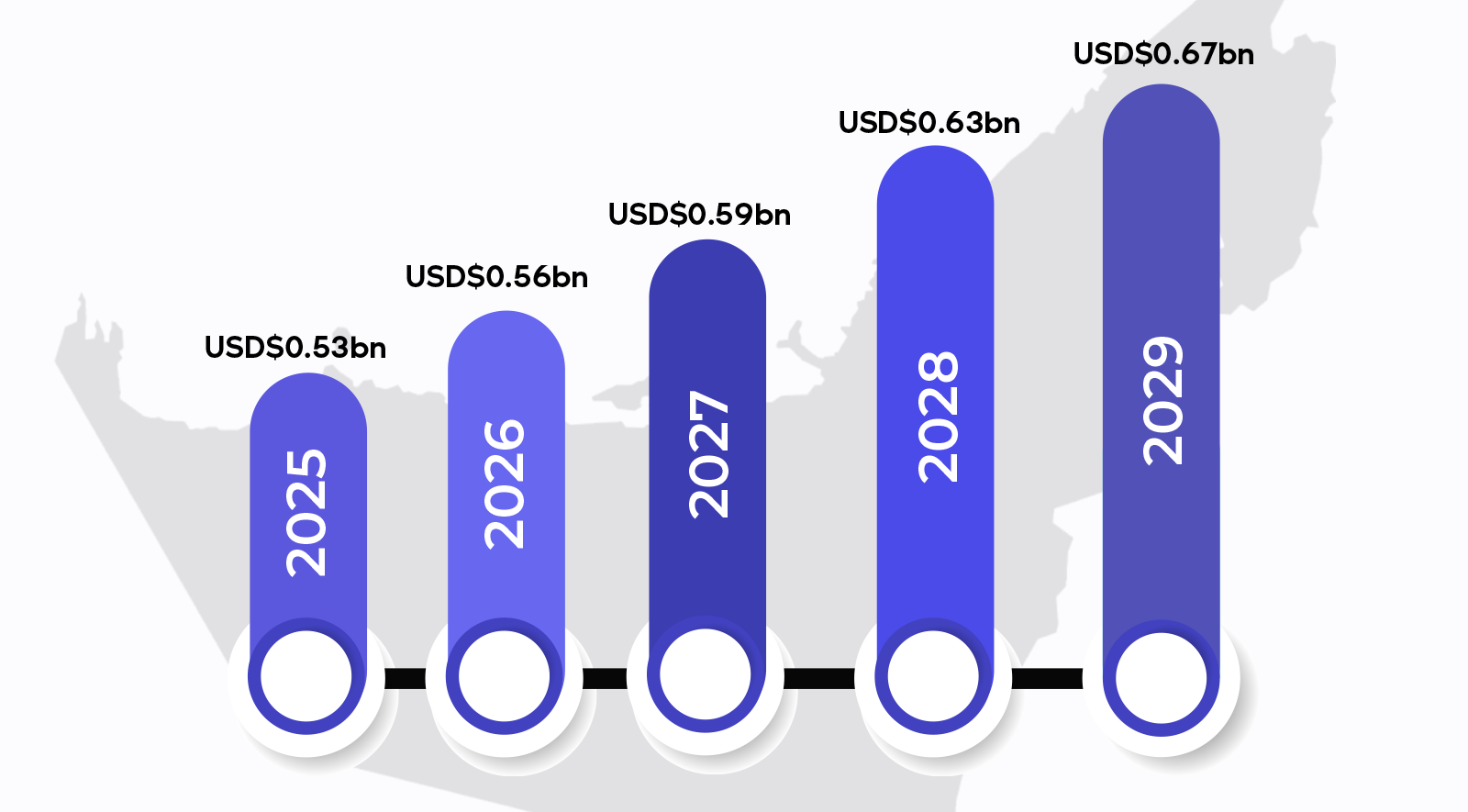
Here’s what sets the Dubai app development market apart:
- High Smartphone Penetration: With one of the highest smartphone usage rates in the world, Dubai offers a mobile-first audience that’s always online – and expects seamless digital experiences.
- Multicultural User Base: The population is incredibly diverse. Your app needs to cater to different languages, preferences, and payment behaviors. Arabic and English are a must. User experience must feel intuitive across cultures.
- Strong Government Push for Digitalization: From the Dubai Paperless Strategy to Smart Dubai initiatives, the government is pushing businesses to go digital. Apps that align with this vision often gain faster traction and support.
- Demand for Luxury and Convenience: Whether it’s instant deliveries, luxury concierge services, or digital banking, users here want efficiency and elegance – combined.
- Regulatory Environment: The UAE has strict data laws and licensing norms, especially for apps in finance, healthcare, and e-commerce. Understanding compliance early can save you from major roadblocks later.
In short, success in mobile app development Dubai isn’t about following global trends – it’s about localizing them to fit an audience that’s digital-savvy, diverse, and ready to pay for quality.
Validating Your App Idea in the Dubai Context
Before writing a single line of code, you need to make sure your idea fits the Dubai market – not just in theory, but in real demand. Too many apps launch here with big ambitions, only to fizzle out because they skipped this step.
Here’s how to validate your mobile app business Dubai locally:
- Start with Local Pain Points: Talk to residents, small business owners, freelancers, or corporate employees – depending on your target user. What frustrates them? What services feel outdated? The best app ideas are born from real, hyper-local gaps.
- Research What’s Already Working: Check the top charts in the UAE App Store and Google Play. See what’s trending in sectors like real estate, food delivery, edtech, and wellness. Learn from their reviews – what do users love, and what do they hate?
- Test Demand with Simple Prototypes: You don’t need a full build to get feedback. A clickable prototype or landing page can be enough to measure interest. Use tools like Figma, Marvel, or even Instagram polls to gauge early reactions.
- Join the Ecosystem: Dubai has a vibrant startup scene. Attend pitch nights at in5, workshops at DTEC, or sessions at Dubai Future Accelerators. These communities can offer brutally honest feedback – and possibly your first beta users.
- Watch the Compliance Lens: Some ideas may look great on paper but need specific licenses (like health apps needing DHA clearance). Early validation includes checking regulatory feasibility – not just user appetite.
The bottom line? Don’t build in the dark. Let the market guide your next move.
Planning Features That Dubai Users Actually Want
Once your idea is validated, the next step in app localization for Dubai is shaping it into an experience people actually want to use – and come back to. In a city that values speed, luxury, and personalization, your app needs to deliver more than just function. It needs to feel right.
Key mobile app features for UAE users:
- Bilingual Support (English & Arabic): This isn’t optional. Make sure both language versions are equally polished and easy to switch between.
- Multiple Payment Options: Credit card, Apple Pay, Tabby, Tamara, cash on delivery – Dubai users expect choice, and your app should offer it from day one.
- Location Intelligence: From tailored delivery zones to hyper-local listings, GPS-based customization is huge – especially in services, real estate, and mobility apps.
- Real-Time Updates & Notifications: Users want to know what’s happening now – order updates, delivery tracking, appointment reminders. Instant, accurate, and non-intrusive notifications are key.
- Luxury UX & UI Design: Dubai users are used to sleek, polished experiences. A cluttered interface or slow load time can make them uninstall in seconds.
- In-App Customer Support: Whether it’s a chatbot or a live agent, users expect support at their fingertips – ideally with minimal wait times and a professional tone.
- Scalability for Growth: If you’re launching in Dubai, chances are you’re thinking regional expansion. Plan your features and tech stack to scale beyond one city or one type of user.
In short: build lean, but build smart. Your MVP should reflect what Dubai users truly value – not just what’s easy to code.
What Users Expect from App Design in the Dubai Backdrop
Design in Dubai isn’t just about looking good – it’s about reflecting the city’s unique blend of tradition and ultra-modern lifestyle. When it comes to app design, Dubai users have distinct expectations that go beyond aesthetics to create seamless, meaningful experiences.
Here’s what your app’s design must deliver in this market to ensure that it is in line with the presumed cultural considerations in Dubai apps:
- Elegant and Luxurious Visuals
Dubai is synonymous with luxury and sophistication. Users expect a clean, premium look – high-quality graphics, refined typography, and a harmonious color palette that resonates with local tastes. Think bold but balanced, modern but respectful of cultural aesthetics.
- Cultural Sensitivity and Inclusivity
Design elements must respect cultural norms and values. For example, imagery should be appropriate for the region – avoiding anything that might offend or misrepresent local traditions. Incorporate culturally familiar symbols subtly to create a sense of belonging.
- Bilingual Interface with Flawless Arabic Support
Arabic is written right-to-left, which requires thoughtful UI adjustments. Users expect smooth toggling between Arabic and English with no broken layouts or awkward alignments. The typography should be legible and attractive in both languages.
- Intuitive Navigation for a Diverse Audience
Dubai’s population is incredibly diverse – ranging from tech-savvy millennials to older expats and locals. Your design should be intuitive and simple enough for all to use easily, avoiding jargon or overly complex flows.
- Fast Loading and Mobile-Optimized Design
With a high smartphone penetration rate, most users are on mobile devices. The design must prioritize speed and responsiveness to keep users engaged, especially considering the fast-paced lifestyle in Dubai.
- Personalization and Local Context
Users’ appreciation for apps that feel tailored to them – whether it’s personalized recommendations, local offers, or content based on their location remains one of the biggest mobile app design trends in UAE. The design should subtly reflect this local context to enhance engagement.
- Accessibility Features
Increasing awareness around inclusivity means users expect accessibility options – adjustable font sizes, voice commands, or color contrast settings – to cater to users with disabilities.
Designing for Dubai means blending world-class digital aesthetics with deep cultural insight. It’s about creating an experience that feels as polished and dynamic as the city itself.
Choosing the Right Tech Stack for Your Dubai App
Developing an app for Dubai means selecting a technology foundation that supports speed, scalability, security, and seamless user experience. The city’s fast-evolving digital ecosystem demands modern solutions capable of adapting quickly to market needs and regulatory requirements.
Here’s what to consider when choosing your tech stack:
- Cross-Platform Development Frameworks
With Dubai’s diverse user base spread across iOS and Android devices, using frameworks like Flutter or React Native can help you deliver a consistent experience across platforms quickly and cost-effectively. These tools allow for faster iterations and easier updates.
- Backend Technologies
Dubai’s apps often require real-time data processing, especially for services like delivery tracking or fintech. Popular choices include Node.js for scalable, event-driven backend systems or Python/Django for rapid development with strong security. Cloud-native backend services on AWS, Azure (widely used in the UAE), or Google Cloud provide flexibility and compliance support.
- Database Options
Choose databases that can handle large volumes of data and offer high availability. MongoDB or PostgreSQL are excellent for flexible, scalable data storage, while Redis can support fast caching to improve app responsiveness.
- APIs and Integration
Your app will likely need to connect with local payment gateways (like Network International, PayFort, or Telr), government portals, or third-party services. Building with RESTful APIs or GraphQL ensures smooth integration and easier maintenance.
- Security First
Given the strict UAE data protection regulations, incorporate robust security measures from day one. Use OAuth 2.0 for authentication, end-to-end encryption for data transmission, and secure cloud hosting with local compliance certifications.
- Analytics and Monitoring Tools
Leverage tools like Google Analytics, Firebase, or Mixpanel to track user behavior and app performance. These insights are crucial for iterative improvements tailored to Dubai’s fast-changing market.
- Scalability & Performance
Design your stack to handle peak traffic and future growth, especially if you plan regional expansion beyond Dubai. Containerization with Docker and orchestration via Kubernetes can help maintain performance and uptime.
In Dubai, the right tech stack isn’t just about functionality – it’s about agility, security, and future-proofing your app in a competitive landscape.
Navigating Regulatory and Legal Must-Knows in Dubai
Dubai is pro-innovation, but it’s also strict when it comes to digital compliance. If you’re planning to launch an app here, understanding the legal landscape isn’t optional – it’s foundational. Getting this part wrong can delay your launch, invite penalties, or worse, get your app blocked.
Here are the key things you need to know:
- You Need a Trade License to Operate
Whether you’re building an e-commerce app, a digital marketplace, or a software-as-a-service product, you’ll need a business license. Options include:
- DED License for mainland businesses
- Free Zone Licenses (like Dubai Internet City or Dubai Silicon Oasis) for tech startups and 100% foreign ownership
- License type depends on your activity – consulting a PRO or legal expert early can save weeks.
- Data Residency and Protection Laws
Under the UAE Data Protection Law (similar to GDPR), user data must be stored and processed securely, with explicit user consent. Sensitive data – like health or financial information – often needs to be hosted locally or in approved cloud regions.
- Sector-Specific Regulations
Certain apps require additional clearance:
- Health apps may need approval from DHA (Dubai Health Authority)
- Fintech or digital wallet apps may require Central Bank of UAE approval
- Telecom or messaging apps might need coordination with TRA (Telecom Regulatory Authority)
- E-Commerce Rules
If you’re selling goods or services through your app, you need a valid e-commerce license. Also, make sure your checkout flow clearly displays VAT (5%), returns policy, and contact info as per UAE consumer laws.
- Content Restrictions
Apps with user-generated content or media sharing need to moderate content tightly. Anything offensive to religious, cultural, or national values can lead to takedowns or fines. Use content filters and clearly stated community guidelines.
- Age Restrictions and Parental Controls
If your app targets children or collects data from minors, you must include age gates, parental consent, and compliant data handling mechanisms.
- Payment Gateway Compliance
Only work with UAE-compliant payment processors. Local players like PayFort, Network International, and Telr are commonly used and already aligned with UAE banking laws.
It’s always best to consult a mobile app developer in Dubai or a UAE-based legal expert before you launch. Dubai supports innovation, but it expects you to follow the rules – down to the fine print.
Scaling Your App in Dubai’s Fast-Moving Market
The efforts you put to build mobile app for Dubai market and launch it, is just the beginning. Dubai’s market moves fast – what works today can be obsolete tomorrow. To stay ahead, you need a scaling strategy built on adaptability, local insight, and smart partnerships.
Here’s how you can grow beyond the initial launch:
- Localize Beyond Language
Scaling in Dubai means speaking to segments, not just demographics. Consider localizing offers, promotions, and experiences based on cultural events (like Ramadan or UAE National Day), expat communities, or geographic clusters (like Dubai Marina vs. Deira).
- Use Influencer and Community-Driven Marketing
In Dubai, micro-influencers and niche community groups carry real weight – whether it’s moms on WhatsApp groups or techies on Telegram. Collaborate with trusted local voices to create awareness and credibility as you scale.
- Leverage Government and Startup Ecosystems
Apply for accelerator programs like in5, Hub71, or Dubai Future Accelerators. These platforms offer funding, mentorship, and exposure – plus connections to enterprise and government contracts that can take your app from startup to staple.
- Enable Multi-Channel Customer Acquisition
Beyond performance ads, explore corporate partnerships, offline activations in malls or events, and co-branded loyalty programs. Dubai users love exclusivity – use that to your advantage through VIP tiers or referral-based access.
- Monitor and Iterate Rapidly
Use tools like Firebase, Mixpanel, or Hotjar to analyze user behavior and drop-off points. Continuous improvement is key in a city where expectations are high and switching apps takes a second.
- Ensure Infrastructure Can Handle Growth
Make sure your backend is cloud-ready, scalable, and resilient. Use load balancers, CDNs, and auto-scaling groups to ensure performance doesn’t drop as your user base grows.
- Prepare for Regional Expansion
Once you succeed in Dubai, the rest of the GCC is your next play. Build your app design for Middle East roadmap with Saudi Arabia, Qatar, and Kuwait in mind. This means prepping for regional compliance, multiple Arabic dialects, and different cultural nuances early.
Scaling in Dubai is about bold moves, but also about knowing how the city ticks. The winners are the ones who stay agile, tap into the right networks, and keep the user at the center of every growth decision.
Challenges You Might Face When Entering the Dubai App Market
Even with a solid app idea, launching in Dubai comes with its own set of complexities. The market is full of potential – but only for those prepared to navigate the local landscape with precision and flexibility. Here are some of the real-world hurdles entrepreneurs often encounter during Dubai app development:
- Regulatory Tightropes
Dubai has a structured, no-nonsense approach to data privacy, licensing, and content control. One misstep – like using the wrong payment gateway or mishandling user data – can delay your launch or restrict your app’s visibility.
- Serving a Hyper-Diverse Audience
With Emiratis, South Asians, Europeans, and many other expat communities using the same digital platforms, expectations around design, language, UX flow, and trust vary widely. A one-size-fits-all app rarely makes it here.
- Infrastructure That Fails to Scale
Many startups build for launch, not for growth. But in Dubai, scaling can happen fast – and poor backend decisions early on often lead to high bounce rates or outages when traffic surges.
- Keeping Up With Experience-Led Expectations
In a city where users are used to premium experiences – be it ordering groceries or booking healthcare – your app needs to be polished, fast, and responsive from the start. Users won’t wait for you to figure things out post-launch.
- Building Without Local Context
It’s tempting to apply strategies that worked in the US or UK. But in mobile app development Dubai, cultural context matters – whether it’s push notification timings during Ramadan or knowing what “fast delivery” really means here.
This is Where a Dubai-Aware Product Partner Matters and CodingworkX comes in.
You don’t just need coders – you need a product partner who understands how Dubai works, moves, and scales. At Codingworkx, we blend technical expertise with market intuition. We’ve helped Dubai-based startups launch with confidence, scale without friction, and build products that feel right at home in the region.
From selecting the right tech stack for regulatory compliance, to creating bilingual, culturally relevant designs, to stress-testing your infrastructure for hypergrowth – we make sure your mobile app business Dubai isn’t just ready to launch, but ready to thrive.
Whether you’re building an e-commerce platform, a healthtech app, or something completely new, we’ve likely walked that path before. Our job is to help you move faster, avoid common pitfalls, and deliver an experience that Dubai users will trust and return to.
FAQs.
Q. What makes the Dubai market unique for mobile app development?
Ans. Dubai’s market blends high smartphone penetration, a diverse user base, and strong government support for tech innovation. Users expect premium experiences, multilingual support, and fast, reliable performance, regardless of the app category. Cultural sensitivity, trust-building, and speed-to-market matter more here than in many other global regions.
Q. How do I localize my mobile app for Dubai users?
Ans. App localization for Dubai goes beyond translation. For Dubai, that means Arabic and English language support, right-to-left (RTL) layouts where needed, local payment options (like Tabby or Apple Pay), region-specific notifications (e.g., during Ramadan), and alignment with local regulations and user expectations.
Q. What are key cultural considerations when building apps for UAE?
Ans. Respect for religious practices, modest visuals, content appropriateness, and timing of communications (like push notifications) during prayer hours or religious holidays are crucial. Additionally, UAE users often value prestige and privacy – both should reflect in your app’s tone and UX.
Q. How much does it cost to build an app for the Dubai market?
Ans. Costs vary based on complexity, features, and tech stack. A basic MVP can start from AED 50,000–70,000, while more advanced, scalable platforms can exceed AED 250,000. Factors like bilingual support, local integrations, and regulatory compliance can also influence the budget.
Q. Why choose CodingWorkx for mobile app development in Dubai?
Ans. We understand the Dubai market inside out, from tech to culture to compliance. At CodingWorkx, we don’t just build apps – we co-create products that feel native to the UAE. Our experience working with startups and enterprises in the region for developing an app for Dubai means faster launches, fewer mistakes, and better user retention.
Q. Do Dubai users prefer Android or iOS apps?
Ans. Both platforms matter in Dubai. iOS has a strong presence, especially among locals and high-income users, while Android dominates among expats. A cross-platform or hybrid approach is often the best route to reach a wider audience in the region.
Q. What legal or compliance issues should I know when launching an app in Dubai?
Ans. Apps in Dubai must comply with the UAE’s data protection laws, e-commerce licensing requirements (especially if you’re selling products or services), and content regulations. Depending on your app type, you may also need approvals from government bodies like TDRA or the Department of Economic Development.

